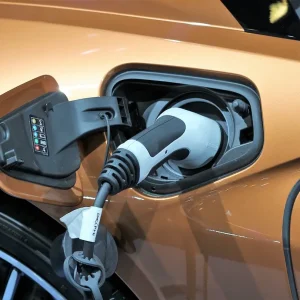Electric vehicles (EVs) are now part of the mainstream for fleet managers, although diesel is not out of the picture yet, industry figures have said.
The comments were made in a webinar held by fleet operator organisation ACFO, on the subject of fleet fuels of the future.
One of the speakers was Stewart Lightbody, head of fleet services at Anglian Water Services, who said that his eventual goal was for his fleet, which includes company cars alongside vans and HGVs, to be 100% electric, with the introduction of plug-in vehicles having an integral role to play in the company’s carbon reduction programme.
Anglian Water Services is currently going through a company car choice list review and, to date, 45% of its company car drivers have selected a plug-in hybrid.
Furthermore, Lightbody is studying telematics data to work out where low-mileage vans in his fleet can be replaced with plug-in vehicles.
He said, “Electric vehicles are now mainstream and there is no real compromise. It is about doing the right thing in the communities in which we live and work. Why wouldn’t you protect the environment?”
Lightbody said that electric vehicles were “another tool in a fleet manager’s toolkit”, and while accepting a fully electric fleet was not yet practical, he added that the shift should be under way.
He said, “Fleet managers do not have to convert every vehicle to electric today because that is not viable, but they can make a start. Where we can introduce electric vehicles we will.
“We are starting where the decision is obvious and we will expand the number of electric vehicles on the fleet over time as vehicle battery range improves and manufacturer model choice increases.”
Another speaker on the webinar, James O’Neill, UK director at electric solutions provider Ensto, said that despite recent improvements in EV technology, some fleet managers still had concerns about perceived issues such as cost implications, vehicle range anxiety, model range and availability, infrastructure access and charge point capability, and whether on-board software and data tools could be integrated into existing systems.
Despite these concerns, O’Neill said fleets were leading the way on EVs, they account for 70% of plug-in vehicle sales, with plug-in hybrids proving popular.
He said, “Fleet adoption is where electric vehicle take-up is happening. For the most part, demand is for plug-in hybrid due to the attractiveness of benefit in kind tax.”
O’Neill predicted 25% of car sales would be electric by 2025, with this rising to 40% by 2030 – up from 5.3% in the first five months of this year according to the Society of Motor Manufacturers and Traders (SMMT).
Also predicting a bright future for EVs on the webinar was Doug Hyett, UK national fleet sales manager for Volkswagen.
He said VW will be spending ?50 billion on battery technology in the next two years and ?20 billion on EVs, with an expectation that by 2021 they will account for 10% of UK brand sales.
However, he also said VW would continue to invest in diesel and petrol, with developments including selective catalytic reduction – an active emissions control system that injects AdBlue – along with a new mild hybrid diesel powertrain, and greater roll-out of particulate filters for petrol cars, which are already being fitted to the Up GTI and some Arteon models.
Hyett said, “Fleet fuels are changing with a shift towards battery electric vehicle and plug-in hybrid electric vehicles, but diesel is still a huge part of the mix.
“The modern diesel engine is an indispensable part of the solution as it has improved dramatically over the years in terms of efficiency and environmental performance.”





